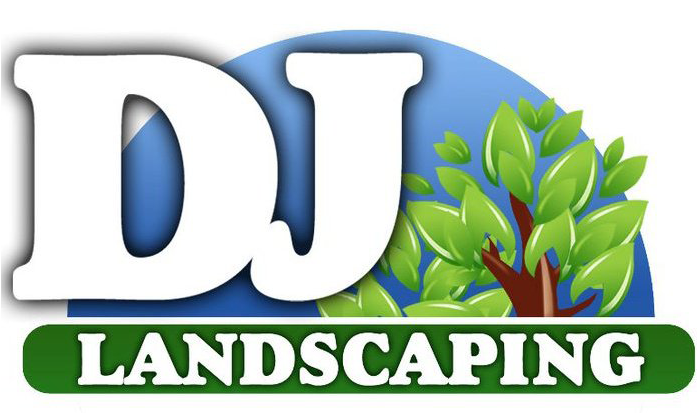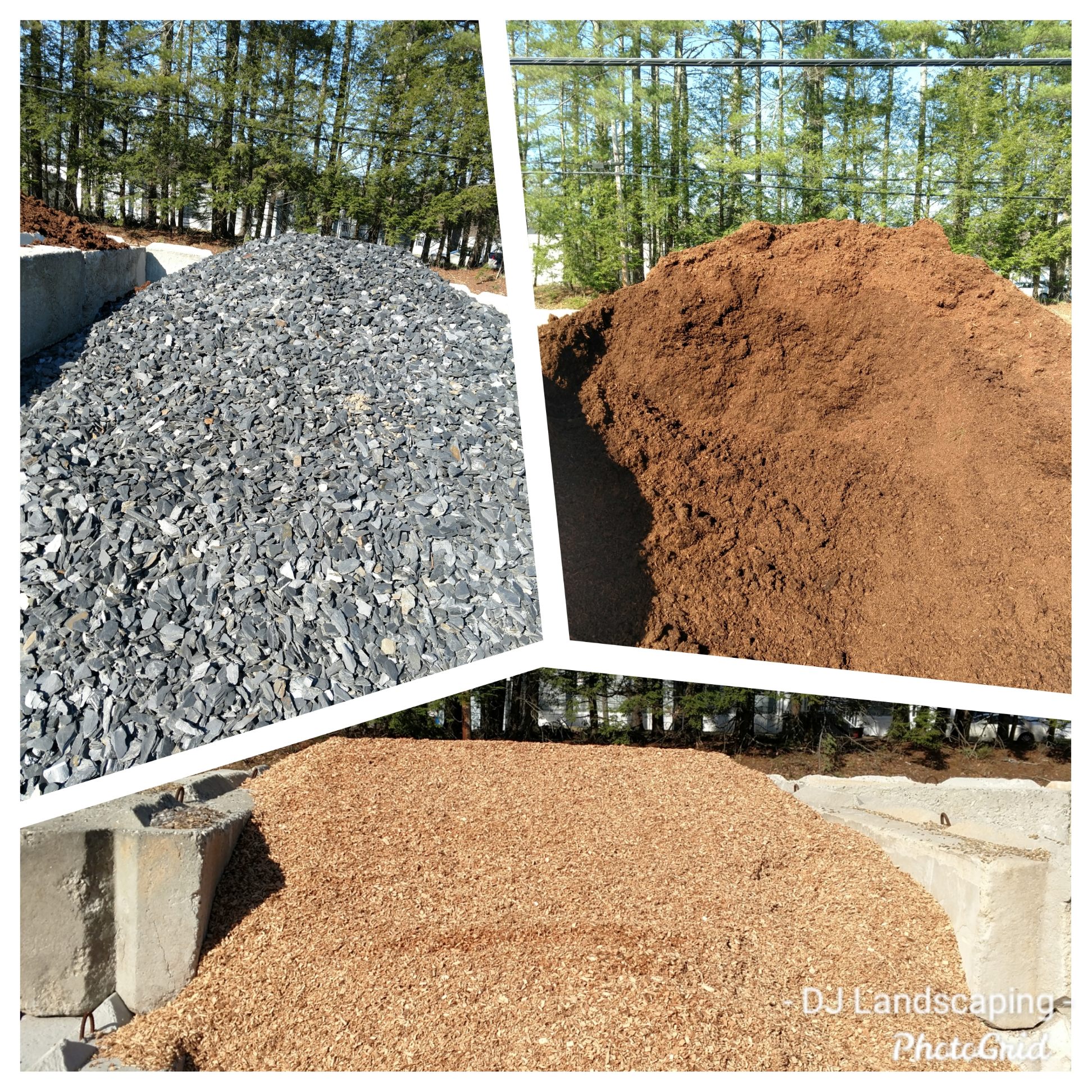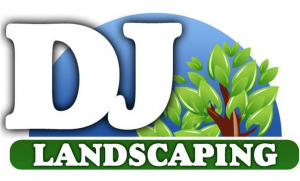
LANDSCAPE MATERIALS
Join the growing number of smart homeowners and businesses
that have experienced the value of our service…
CALL TODAY
1-603-490-3334
CLICK HERE TO VIEW OUR 2024 PRICING GUIDE
LANDSCAPE MATERIALS CENTER
(Located at 209 Londonderry Turnpike [Bypass 28], Derry, NH 03058)
DJ Landscaping is proud to provide the finest of landscape materials including:
- Enhanced Blend
- Black Mulch
- Playground Chips
- Crushed Stone
- Tan Pea Stone
- Screened Loam
Open for landscape materials pick-ups and deliveries!
Check out our new products!!
All landscape materials in stock and available!

Mulch:
The Advantages of Mulching:
Mulch prevents weeds from growing in a planting bed. Mulch not only beautifies planting beds with an attractive layer of material over bare soil, it also has several positive benefits, such as making garden maintenance easier while improving the health of your plants.
Moisture Retention:
Most plants need contact moisture for proper growth. Mulch keeps the soil moist for longer than uncovered dirt. The material absorbs water from rainfall and irrigation and slows the evaporation of moisture from the soil. The improved water retention may reduce the need for frequent irrigation, allow you to space out the plant watering longer to reduce water consumption. A layer of mulch also slows erosion by preventing water from washing soil out of the garden.
Soil Temperature Control:
Mulch serves as an insulating layer for the soil so the temperature of the ground changes more slowly. Mulch applied in the spring or early summer keeps the soil cooler for longer. The mulching material absorbs some of the sun’s rays and slows the temperature increase of the soil. As the temperatures drop in the fall and winter, the layer of mulch allows the soil to retain heat. The warmer soil allows plants to grow longer than they would otherwise, and helps protect plants’ roots from harsh winter temperatures.
Weed Suppression:
While healthy plant growth pushes out some weed growth, a layer of mulch suppresses even more unwanted weed growth in your gardens and planting beds. Mulch prevents sunlight from reaching germinating weeds so they aren’t able to grow. When your weed seeds land on top of mulch, they aren’t able to root themselves deeply into the soil, so even if they grow they are easier to remove.
Soil Nutrients:
Organic mulch materials break down over time adding nutrient-rich organic matter to the soil. These nutrients feed the plants and organisms. The decomposed matter also improves the soil structure by eliminating hard, compacted soil to allow more oxygen, water and nutrients to reach the roots of the plants.
Stone:
Crushed Stone is a marvel of modern construction. It’s abundant, versatile, prevalent, and cheap.
While many may think of gravel, crushed stone is an entirely different variety of construction material. Gravel tends to be less jagged due to the erosion process that is used to make it nature, while crushed stone comes from natural rock deposits. Crushed Stone has a variety of uses in many fields.
How Crushed Stone is Made:
Crushed Stone is broken off larger rocks and then ground into various grades, leaving it versatile for a variety of construction projects. The Earth has a large concentration of natural rock deposits, with Limestone, Granite, and Quartzite being common. Crushed Stone is so abundant that it’s practically impossible to exhaust. It’s safe to speculate that one could measure the health of an economy by how much Crushed Stone is in circulation. It is cheap and integral for use in a variety of projects.
Crushed Stone Varieties:
Aside from using Crushed Stone and Tan Pea Stone for landscaping purposes, crushed Stone has multiple uses such as a base material for driveways, walkways, septic and drainage solutions, roadways, dry wells, entrances for construction sites, and storm water systems. It can also be used to mix concrete and asphalt, a base to retaining walls, applied to irrigation and on gravel roads and more.
Screened Loam:
What is Screened Loam?
Loam is all about texture. It is a mixture of clay, silt and sand. This mixture is important because it holds moisture while allowing for drainage.
Screened loam is passed through a screen to remove stones, roots and other debris. To get it unscreened means either you’re energetic and plan to remove all the rocks yourself or it means that you’re filling a large hole and don’t care that it’s full of stuff.
Compost is the decomposed result of organic matter. The organic matter could be from a lawn, flower or vegetable garden bed, weeds, or kitchen items such as coffee grounds, vegetable peels, etc.
Mixing loam and compost together provides plants with nutrients and improves the quality of the soil.
Here’s how it’ll affect the senses:
Touch
A handful of composted loam should feel gritty in your hand. It will form a ball easily, yet crumble when pressure is applied.
Smell
Loam should give off a sweet, earthy smell. If it has a sour smell then the compost is still decaying. It should be spread out and dried until the sour smell goes away.
Screened loam is perfect for flower beds, topdressing planted areas and lawns.
Proudly Serving Our Customers For Over 30 Years!
“Professionalism at its finest. Amazing work done all year round. The only place id ever recommend for landscaping, hardscape and property maintenance!” – AJ N., NH
© 2024 DJ Landscaping
All rights reserved.
Address
209 By-Pass 28
Derry, New Hampshire 03038
Phone: 1-603-490-3334
FREE ESTIMATES
Call 1-603-490-3334

